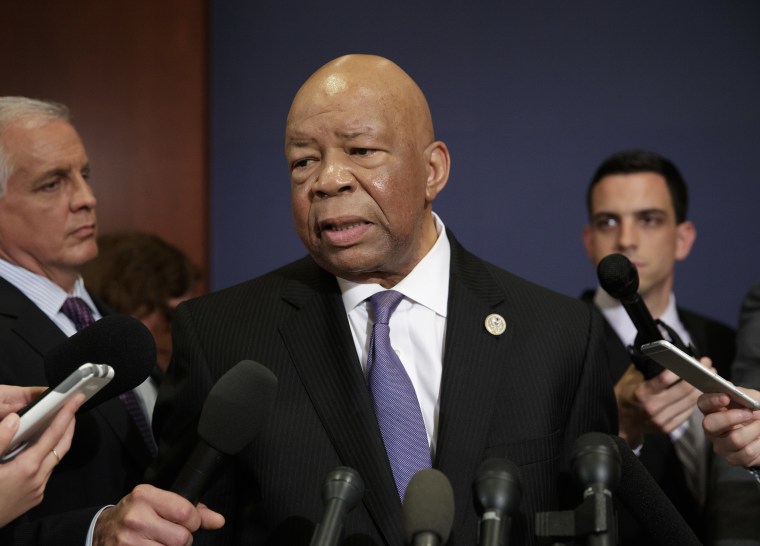WASHINGTON — Weeks before Michael Cohen reports to federal prison on charges related to hush-money payments he's admitted to making as President Donald Trump’s personal lawyer, a top Democrat in Congress says he’s uncovered new information that suggests other Trump lawyers misled ethics officials on the matter.
In separate letters Friday to the White House counsel and the Trump Organization, House Oversight Committee Chairman Elijah Cummings, renewed his demand for Cohen-related documents as part of his investigation into payments made to Cohen to help silence women alleging they had extramarital affairs with Trump.
In the letter to the White House, Cummings says the documents he’s requested are “even more critical” given new information obtained from the Office of Government Ethics, an executive branch agency, “that describe false information provided by the lawyers representing President Trump.”
Those documents, Cummings writes, include notes taken by OGE officials accounting for what they described as the “evolving stories” provided by both Trump’s personal attorney and White House lawyers about whether Trump directed Cohen to make the payments and if he reimbursed him for them. Initially, OGE officials were told Trump never owed Cohen any money, but that changed after Rudy Giuliani revealed in a television interview that Trump had made payments to Cohen as part of a “retainer” agreement.
“It now appears that President Trump’s other attorneys — at the White House and in private practice — may have provided false information about these payments to federal officials,” Cummings said in a statement. “This raises significant questions about why some of the President’s closest advisers made these false claims and the extent to which they too were acting at the direction of, or in coordination with, the President.”
Stefan Passantino, then a White House layer, told OGE that Cohen had been authorized to make payments as part of the arrangement “in [the] course of legal services” he provided. OGE officials, though, were told they could not view the retainer agreement to verify the arrangement.
Federal prosecutors ultimately said in Cohen’s plea agreement that there was no retainer agreement, and Cohen admitted to making the payments “at the direction of Individual 1.”
In Cummings’ letter to the White House and the Trump Organization, he insisted they comply with a previous request for documents related to the issue by Feb. 22, or he reserved the right to force compliance, likely through a subpoena.

